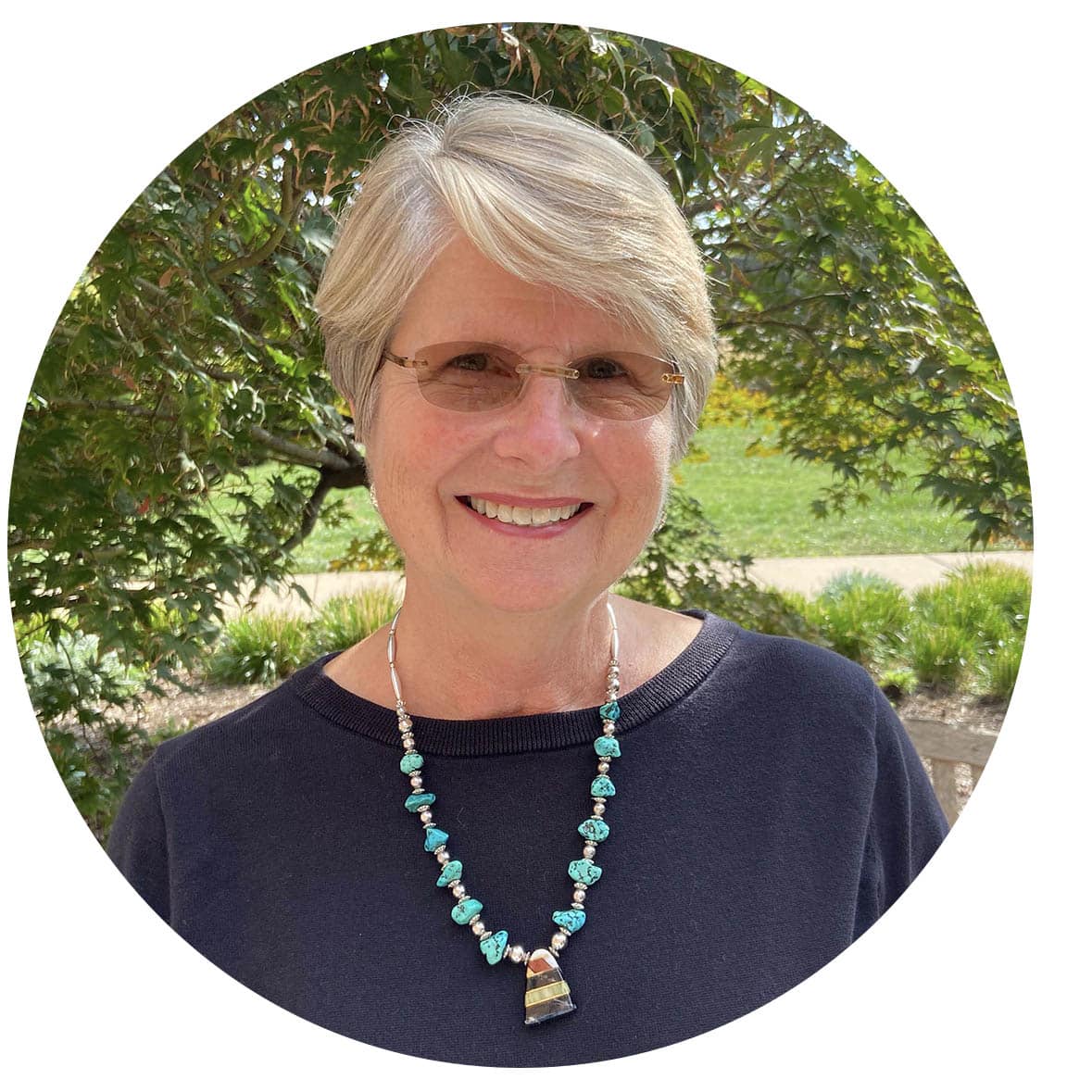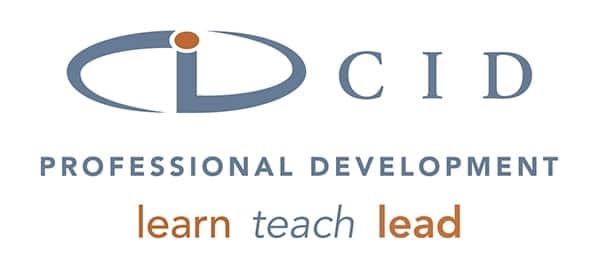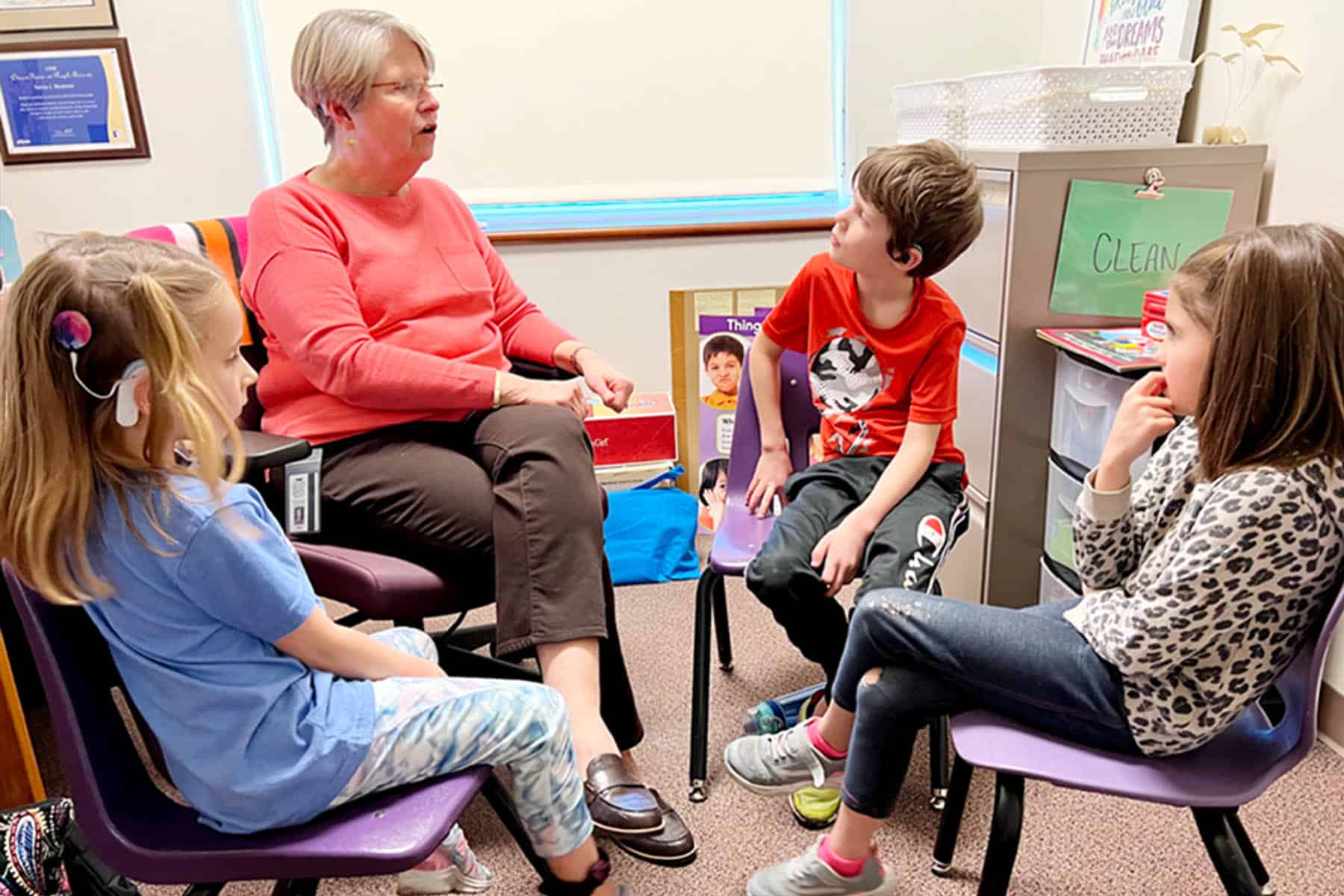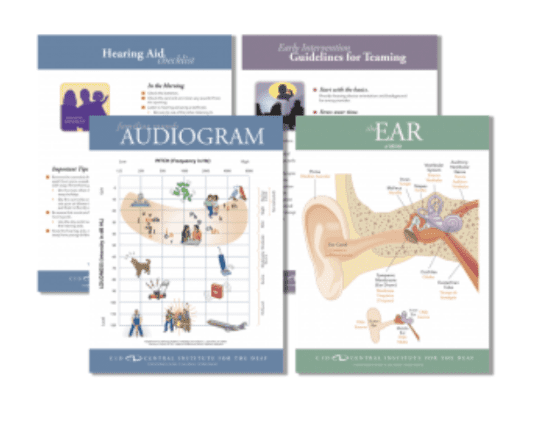One of the most vital roles at any school is that of a school counselor. At CID, Pat Wasserman fulfills this role every day by supporting students and their families and collaborating with staff. As school counselor, she conducts one-on-one and group sessions covering topics such as social manners, acceptable behavior, advocacy, safety, bullying, decision-making skills, coping with hearing loss and cochlear implant surgery preparation. Pat provides children with strategies and support as they prepare to transition into their local schools, coordinates programming through community resources and organizes CID’s young alumni club.
Pat is an ideal role model for many of the students here. Having bilateral cochlear implants herself, she can relate to challenges in the school setting both emotionally and academically. Growing up, Pat attended St. Joseph’s Institute for the Deaf through middle school. She attended high school at Kirkwood High School in St. Louis, MO where she was able to use her listening and spoken language skills with her classmates and teachers. Pat later learned American Sign Language (ASL), too. Fueled by her passion to work with children with hearing loss, she earned bachelor and master’s degrees in child development, family relations, counseling and social work.
Pat recently provided some great perspective on her background and role as school counselor.
——————–
What was school like for you growing up?
At St. Joe’s I was the only one from St. Louis. I used to invite the girls (who lived in the dorm) to come over and spend the night. We were like one big family. We still keep in contact through writing letters. I didn’t have any mainstream preparation, like we do here now. No IEPs. My mother was my advocate; she would go and talk to the teachers. I had to sit in front of the class and lip-read. My classmates took notes for me. One thing that helped me get through high school was having an itinerant teacher.
Did you have a school counselor or mentor?
I had a wonderful school counselor. I did not have a deaf adult in the school setting to talk to about being deaf. I had that ah-ha moment! I could be a counselor.
What were your jobs before becoming school counselor?
CID is my first and only job. My dream job. My mother was a counselor and my neighbor turned sister in law was a teacher of the deaf. I always knew I wanted to work with the deaf. I started out working at the clinic part time. Because I knew how to sign, I would evaluate prospective students that used sign language. They were interested in hiring me; they knew what I was studying. I was in graduate school at the time that I was hired in fall of 1984.
Not including hearing technologies, what are some changes you’ve seen at CID over your career?
We now have e-mail! It makes communication so much more accessible. When I started, we didn’t have air conditioning or structural considerations to sound proof classrooms. Now we have air conditioning and our school is sound proofed. As for the children, they are mainstreamed much earlier these days.
What are some of the most common issues you have to work through with students who are deaf and hard of hearing?
It is important to note that having a disability makes you vulnerable. The students with hearing loss want to fit in. I work to empower these students to form positive thoughts, to make positive decisions, to become good advocates and make healthy choices. We practice what to do in different scenarios. Internet safety and bullying are two big topics. I will be partnering with our media literacy teacher to teach how to be careful on the internet. So many people are so vulnerable online. You can be taken advantage of. I feel for the younger generation, they are growing up too fast with technology.
What is or was the most surprising thing about your job?
The kids inspired me! They inspired me to get a cochlear implant. When I started, there was one boy with a cochlear implant. As more children got cochlear implants, I saw their results and was amazed at their results.
How does being deaf/having cochlear implants inform what you do?
My cochlear implants have helped me with my listening skills. They allow me to keep up with my students and I can relate to them so well. I do use an ASL interpreter at meetings and I talk to the children about ASL. Growing up, there was a stigma around ASL and it doesn’t have to be that way today. I want the children to know we can talk about it. It’s important for them to be open-minded. ASL is a wonderful language; it’s learning a foreign language that aligns to their identity as a person with hearing loss.
Why is it important to have a school counselor on staff?
Children with hearing loss are likely to face unique issues compared to children with typical hearing. It is important to have someone on staff dedicated solely to their emotional wellbeing. The students can come to me with issues they don’t want to bring up in the classroom or at home. I’m here to validate their feelings. I empower them all the time. No excuses! I tell the older kids I better watch you finish high school, go to college and get a job.

Pat Wasserman is the school counselor at CID – Central Institute for the Deaf. She has her Master’s in Counseling and Social Work. Ms. Wasserman wears bilateral cochlear implants which gives her a unique perspective in her role to support students and their families while collaborating with staff. One of the highlights of her job is reconnecting and staying in touch with her former students through organizing CID’s young alumni club.












